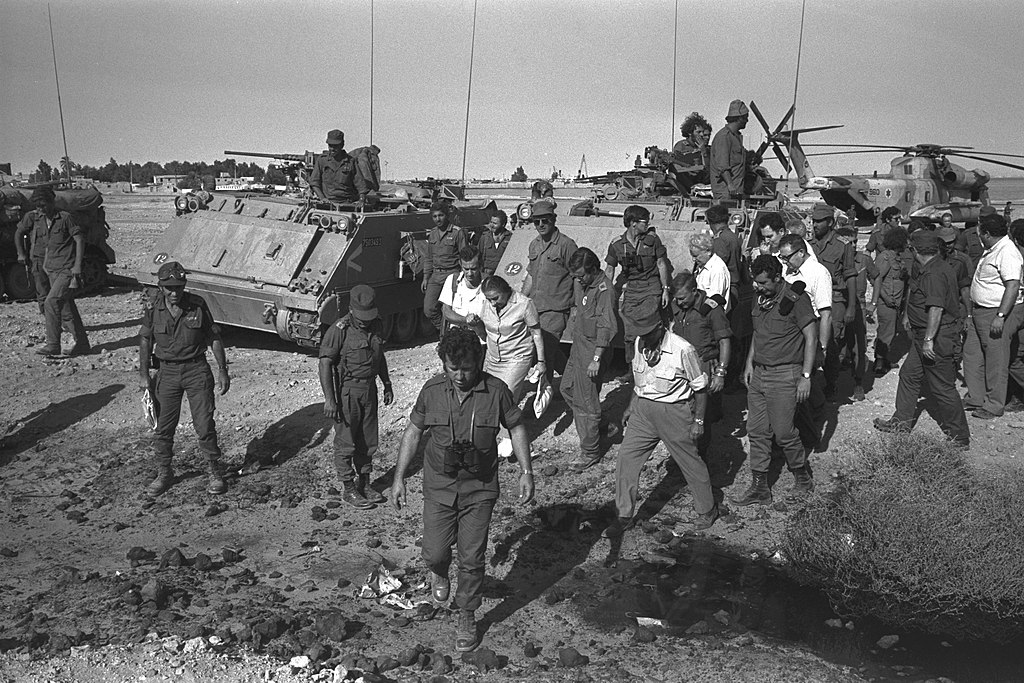IN THE MEDIA
War again shocked us all
October 5, 2023 | Colin Rubenstein

An edited version of this article appeared in The Australian – 5 October 2023
In July 1973, I visited a young, 25-year-old Israel, seemingly well-recovered from the threatening June 1967 Six Day War, for a happy sporting event – the four-yearly Maccabiah Games, the so-called “Jewish Olympics”.
So I was scarcely prepared to wake up in Melbourne on Sunday October 7, 1973, a day after Yom Kippur in Australia, the holiest day in the Jewish calendar, to learn of the surprise massive multi-front attacks by well-prepared Arab armies against Israel. Aggressive Syrian advances on the Golan Heights, and by the Egyptian army into the Sinai Peninsula, had started at 2.00pm on Saturday, October 6, Yom Kippur in Israel, a day when the country effectively shuts down.
In hindsight, given the strident hostility to Israel by the Arab world, including the belligerent ‘three Noes’ at the Khartoum conference of September 1967 – no to peace, no to recognition, no to negotiations – this further attempt to reverse the 1967 ‘failure’ and wipe out Israel should not really have been unanticipated. Yet it was an Israeli intelligence failure of the highest order.
The shock and trauma of this experience has undoubtedly been etched into Israel’s national psyche. Yet, as I had seen, Israel was already a cohesive and united society. While absolutely caught off guard and underprepared, the hope and expectation one had, shared across the Jewish world as a whole, was that, despite the overwhelming anxiety and desperation in this challenge to its very existence, Israel could somehow ward off this attempt yet again to destroy the newly fledged nation – which it ultimately did. However, it took several days to turn the tide, and three weeks to seal the victory – requiring the urgent airlift of critical military supplies from the US, and coming at the cost of more than 2,600 Israeli soldiers killed, with more than 7,000 injured, many seriously.
How different, yet in some ways similar, is the situation today on Yom Kippur 2023. Different, given the historic impact of the Abraham Accords, ushering in major progress towards Arab/Israeli reconciliation, amid growing prospects Saudi Arabia could join this circle of peace. Yet similar in that Iran and its many non-state proxies remain committed to obliterating Israel entirely, subjecting its cities and frontiers to regular missile and terrorist attacks while also representing a major threat to many Arab countries.
In 1973, a major disappointment for me was that the ALP of the principled statesman Doc Evatt – which was so supportive of Israel’s creation – under PM Gough Whitlam took a so-called “neutral and even-handed” attitude to the Arab aggression of the 1973 war. Sadly, this stance was, in retrospect, symptomatic of increasing distancing from and even hostility to Israel internationally.
Yet, as a young political scientist, the drama of 1973 also underlined that security and deterrence against hostile and often despotic foes and aggressors could never be primarily about rhetoric and defence reviews– it needs to have real substance and enhanced capabilities to offer any genuine protection to national independence and democratic values. This is a proposition more pertinent than ever today, not just for Israel and in the Middle East, but also for contemporary Australia.
Dr. Colin Rubenstein AM, taught politics at LaTrobe University from 1969-75 and at Monash University from 1976-98 and since 1999 has been executive director of the Australia/Israel & Jewish Affairs Council (AIJAC).
Tags: Abraham Accords, Australia, Israel, Middle East





